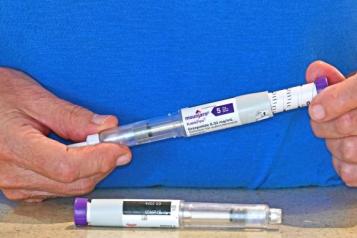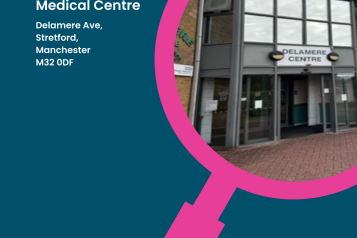Top tips to get the most out of your GP appointment

-
Urgent? See any GP? Otherwise there may be a wait.
Ask yourself: is it important I’m seen quickly or would I be better to wait for an appointment with a particular GP. If you have a long-term illness would you benefit from seeing a GP who knows your history personally?
-
Make short notes describing your symptoms or worries.
Before you see your GP, be clear in your own mind what you are worried about. Think about making short notes describing your symptoms or worries.
-
Many problems? Make a double appointment.
The normal appointment time is ten minutes. Think about what is achievable in this time. If you have more than one problem, consider asking for a double appointment
-
Take a list of ALL your medicines – prescribed or otherwise.
Bring a list of any medication you are taking, including over-the-counter and/or alternative medicines, or anything prescribed after a hospital visit. This includes tablets, liquids or creams. Your GP needs to know about everything you are taking.
-
If necessary, wear accessible clothing.
If you are likely to need to undress for an examination, then wear appropriate clothing which is easily accessible.
-
Discuss important things first and stick to the point.
Make sure you tell the doctor about the important things first and try to get to the point. Don’t feel you have to justify being there (‘my husband was worried’) or leave your main concern to the end. Try to avoid long explanations with unnecessary detail.
-
Not clear on treatment plan? Ask again.
Make sure you fully understand the next steps before you leave the room. If you don’t, then don’t be afraid of asking your GP to go through the plan again.
-
If you need support, take a relative, carer or friend.
If you feel your situation needs it, take a relative or friend for support. They can help you understand or explain.
-
Unhappy? Ask to see another GP.
If you’re not happy, you can ask to see another GP in the practice. You can also change GP practices, but you should as a first step always discuss your concerns with a practice staff member first.
-
Could the practice nurse deal with your problem?
In many cases, a practice nurse will be able to deal with your concern, so consider this as an alternative to making an appointment with a GP. Also the surgery may run special clinics such as asthma and diabetes.
Four key questions
Think about these questions to help you make better decisions about your healthcare.
- What are the benefits? Make sure you understand the benefits to your health if you agree to the procedure/treatments.
- What are the risks? You should be fully informed about the effects of this decision, both short and long term. Take time to consider your care after your treatment and how you will manage this.
- Are there any alternatives? Ensure you are aware of all the options, so you can decide if a different option better suits your healthcare needs.
- What if I do nothing? Remember that just because treatment is available, it doesn't mean it's right for you. Make sure you fully understand the impact on your health if you do nothing and the effect of time on your condition.
If you would like to know more about the questions you can ask your doctor to get the most out of your consultation, take a look at the comprehensive list developed by NHS Choices.


